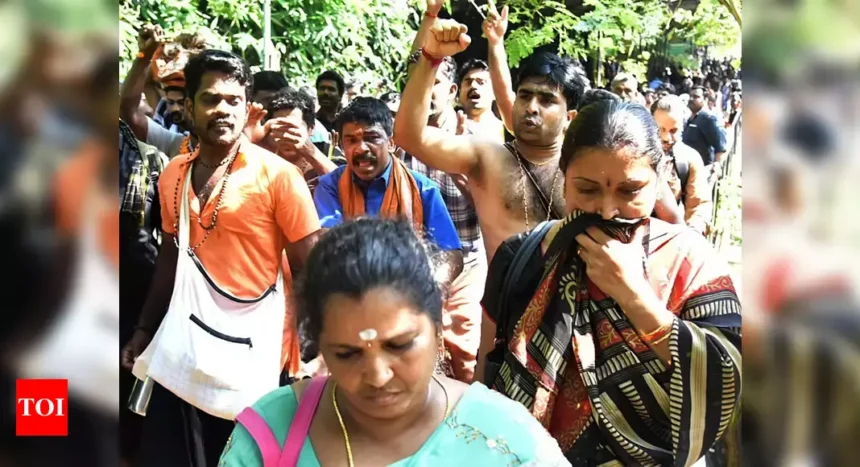In the traditional society of Pakistan, where social norms and religious beliefs often determine how individuals dress and conduct themselves, a recent event involving a woman donning a “Halwa Dress” has ignited intense discussion and prompted inquiries about the treatment of women in public settings.
The incident took place in the bustling city of Lahore, where a young woman was spotted wearing a “Halwa Dress,” a term used to describe a traditional Pakistani outfit that is considered revealing by some. The woman’s choice of attire immediately caught the attention of onlookers, who began to gather around her, shouting insults and hurling abusive language.
The situation quickly escalated, with the woman being surrounded by an angry mob that demanded she cover herself up and adhere to their standards of modesty. Despite the woman’s attempts to explain that she had the right to dress as she pleased, the mob continued to berate her, and the situation eventually turned violent.
The incident has sparked outrage on social media, with many condemning the actions of the mob and calling for greater respect for women’s rights in Pakistan. It has also reignited the debate about the treatment of women in public spaces and the need for greater awareness and education about gender equality.
In a country where women’s rights are often seen as secondary to cultural and religious values, incidents like these serve as a stark reminder of the challenges faced by women in Pakistan. Despite progress in recent years, including the passage of laws aimed at protecting women’s rights, many women still face discrimination and harassment daily.
The incident has also highlighted the importance of education and awareness in addressing issues of gender inequality and violence against women. It is crucial that both men and women are educated about their rights and responsibilities, and that steps are taken to challenge harmful cultural and societal norms.
As the inquiry into the occurrence progresses, there is a collective desire for those accountable for the mob violence to be held responsible and for the event to act as a catalyst for increased regard for women’s rights in Pakistan. Only then can women in Pakistan feel safe and secure in exercising their rights and freedoms.




